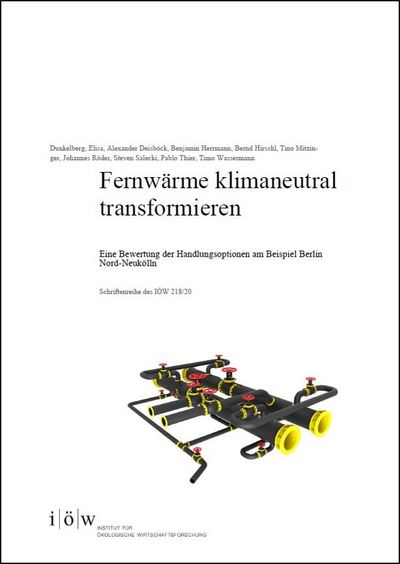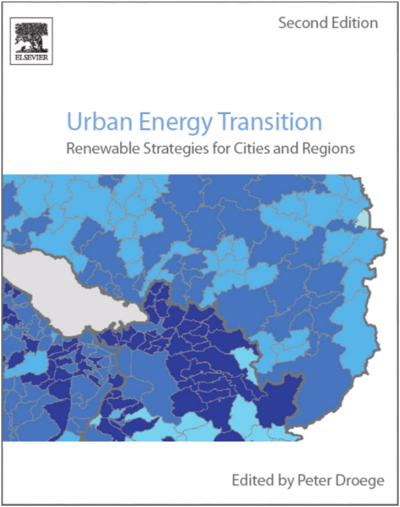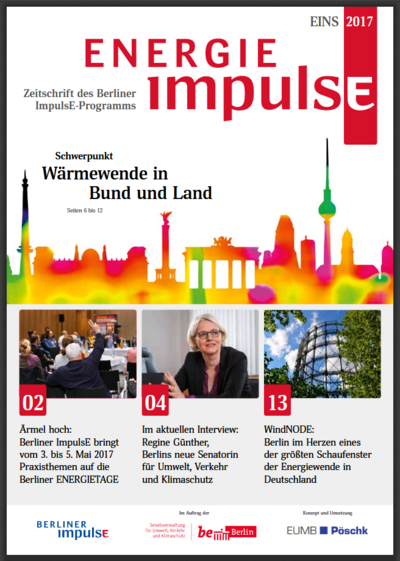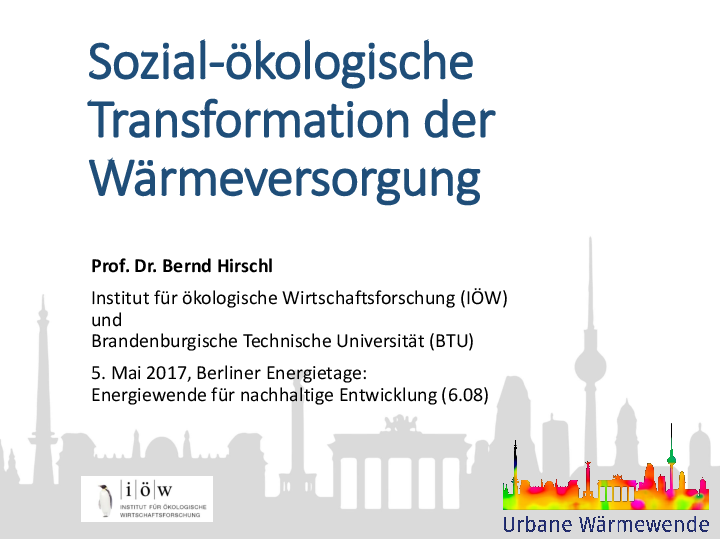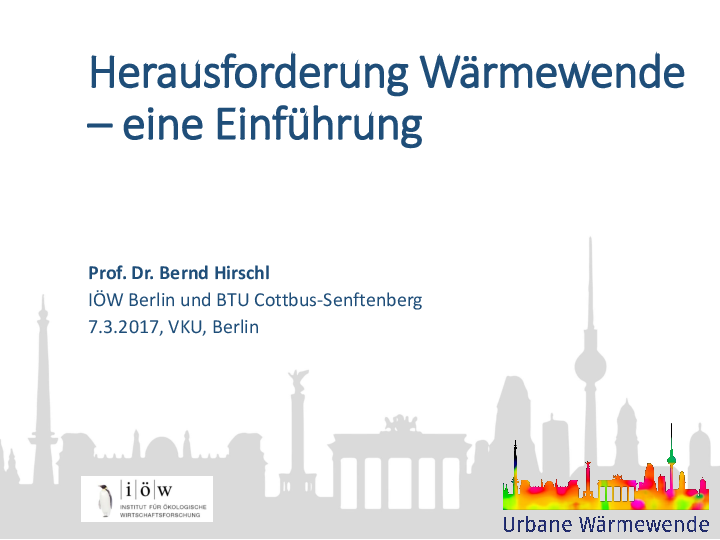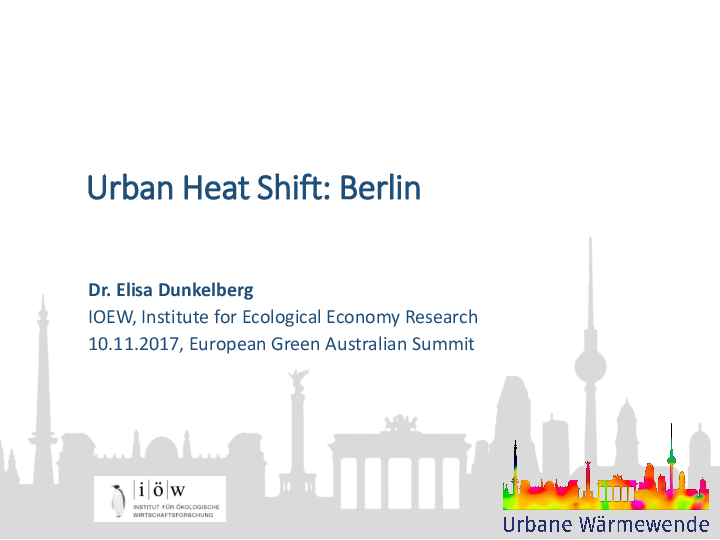Urban Heat Shift Participatory Transformation of Coupled Infrastructures, Focusing on Heat Supply in Berlin
Almost 50% of final energy consumption in Germany is used for heating, thus heat consumption is an important factor when it comes to tackling global challenges such as climate change, energy efficiency and resource conservation. The guiding principle of the project Urban Heat Shift is the development of an environmentally and socially acceptable heat supply in cities intelligently linking other infrastructures, such as gas and power. The project’s aim is to analyze and evaluate options for transforming the urban heat supply from various sustainability perspectives, using Berlin as a case study. This will involve specific technological and systemic options for developing the infrastructure, with a focus on heat supply networks, and the interlinkages to other infrastructures.
The project will furthermore provide an analysis and evaluation of various organizational models, types of governance, and business models in order to determine which are most suitable for achieving municipal goals of climate protection and public welfare.
IÖW Project Team
- Mark Bost
- Alexander Deisböck
- Dr. Elisa Dunkelberg
- Marlen Ihm
- Nina Prehm
- Dr. Steven Salecki
- Dr. Julika Weiß




